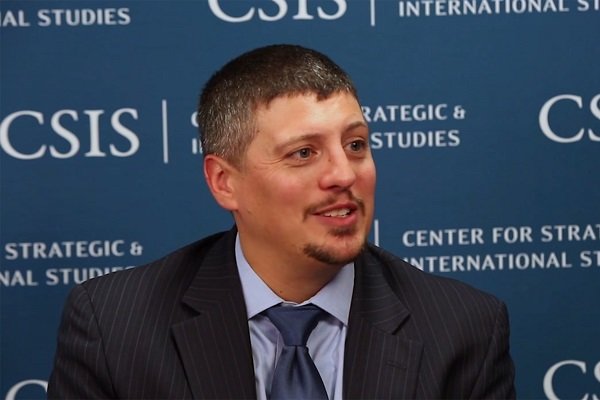U.S. referring to trigger mechanism is irrelevant: Nephew

TEHRAN – Richard Nephew, who served as the lead sanctions expert for the U.S. team negotiating with Iran, is of the opinion that U.S. referring to trigger mechanism “is a bit irrelevant.”
The fellow at the Center on Global Energy Policy at Columbia University, says that “I understand why Iran is doing what it is doing to react and retaliate against the United States.”
He also says that “I understand why Iran is doing what it is doing to react and retaliate against the United States.”
Following is the text of the interview:
Q: Do you think President Trump can refer to trigger mechanism (Because U.S. violated the JCPOA and has not this jurisdiction)?
A: I think that there is a plausible legal justification for the United States to trigger the mechanism. The terms of the JCPOA and UNSCR 2231 refer to the United States as a "participating government" in different ways. In the JCPOA, it means what is plainly written: that the United States is party to the agreement and believes itself to be. That is something the United States stopped doing in May 2018.
UNSCR 2231, though, could be read as saying that "participating government" is only shorthand for "this list of states." This is a common legal approach to avoid having lots of the same words used over and over again.
Some have suggested that this means the United States could trigger the mechanism.
I tend to think that this is a bit irrelevant since the mechanism is also dependent on states agreeing to abide by the terms of the UNSC resolutions that would come back into force. If this is seen as a bit of legal trickery, then the credibility and integrity of the UNSC's own decisions will be undermined. I think, therefore, that this would be highly damaging to the UNSC and that other permanent members of the group would block or seek to block U.S. triggering, or would issue statements that contradict the terms of snapback and create legal confusion.
It is a very difficult and unanticipated situation.
Q: Suppose President Trump can refer to trigger mechanism. Do you think he can snap back the Iran sanctions? Will UNSC agree with him?
A: As I said, he may be able to, but I think that the credibility of this decision would be immediately impugned and that would damage implementation of the sanctions to come.
Q: EU try to save JCPOA but they do not do anything for it. They just send some political statement. This did not led to economic benefit for Iran, INSTEX is example for this. Do you think they can save JCPOA according to Iran’ new paces?
A: No. The EU's efforts are laudable but I do not believe they will be sufficient to help Iran's leaders justify to themselves staying within the JCPOA.
That said, it remains in Iran's interest to abide by the JCPOA and avoid fueling this crisis. Expanding the nuclear program will not help manage that problem nor will it necessarily improve the atmosphere for negotiations to reduce tensions.
I understand why Iran is doing what it is doing to react and retaliate against the United States. But, I don't agree with it nor think it is helpful, any more than the U.S. decision to withdraw from the JCPOA and impose sanctions was.
Q: According to new development do you thing the JCPOA will survive?
A: I have been consistent in my view that the JCPOA cannot survive so many different pressures and attacks, especially from the two core states with obligations under it: Iran and the United States.
I cannot predict if and when it will formally die. But, as an agreement that provides for real redress of serious concerns in the two countries and avoids a crisis, it is already functionally dead.

Leave a Comment